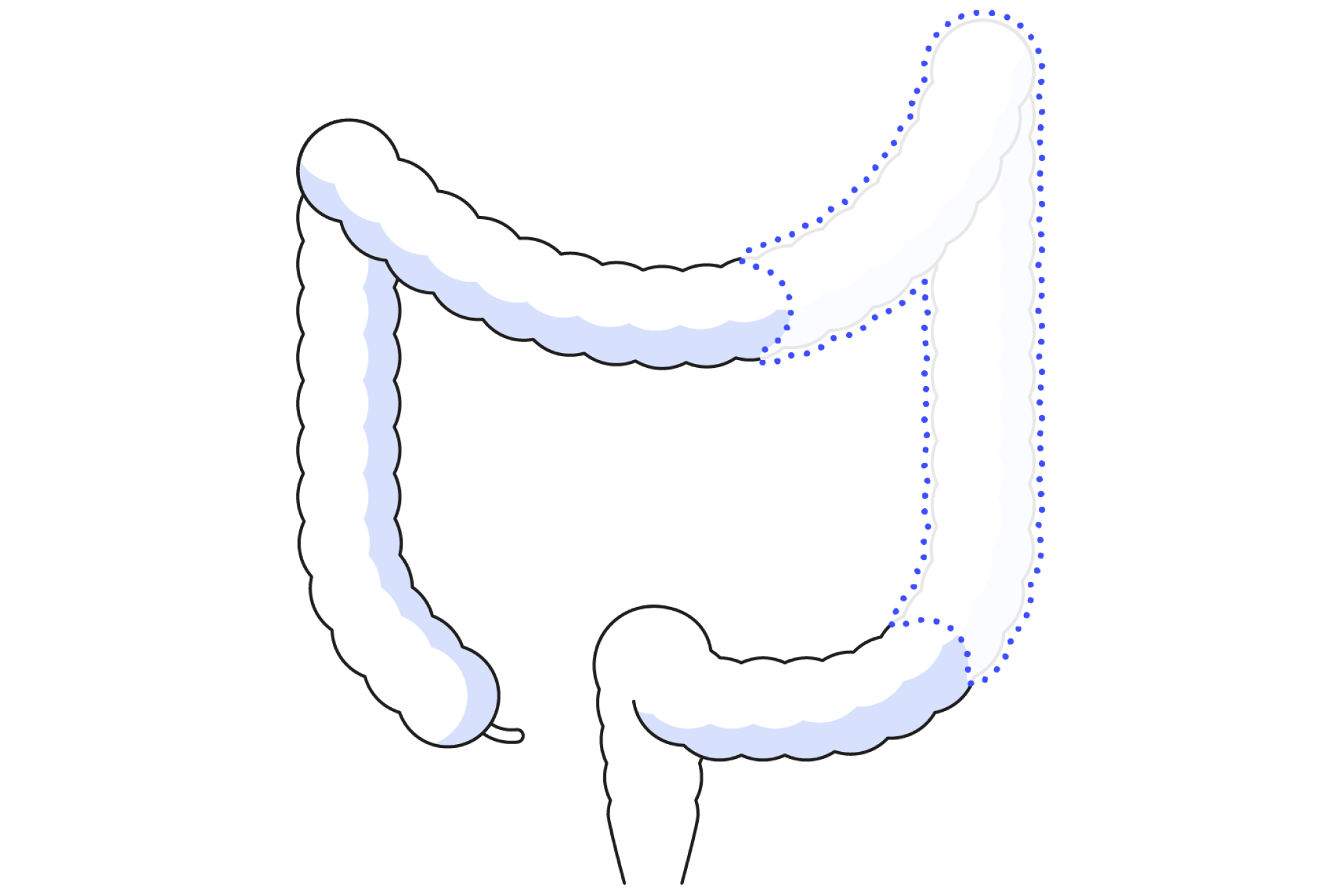
More than 600,000 colon surgeries are performed in the US each year.1 There are several conditions that may prompt your doctor to recommend colon surgery. They can range from benign (noncancerous conditions), like bowel blockages, diverticulitis, inflammatory bowel diseases including Crohn’s, or ulcerative colitis, to cancer conditions, like colon cancer. Surgeons can remove the diseased section of the colon, along with nearby lymph nodes, with a procedure called a colectomy.
It’s important to learn about the many options for care available. You and your doctor can discuss your choices and decide which approach is right for you. On this page, you’ll find information on types of colectomies, how they are performed, questions you can ask your doctor, and how to find a surgeon who performs colon surgery with the da Vinci system.
Colon resection is known as a colectomy. There are several types, including hemicolectomy and sigmoid colectomy. Your surgeon will recommend options best for you based on your particular condition, symptoms, and age.


The surgeon can perform a colectomy through open surgery or a minimally invasive approach. Traditional open surgery requires the surgeon to make an incision in your abdomen large enough to see the colon and perform the procedure using hand-held tools.
There are two minimally invasive approaches for colectomy: laparoscopic or robotic-assisted surgery, possibly with da Vinci technology. Both minimally invasive surgical options require a few small incisions that doctors use to insert surgical instruments and a camera for viewing. In laparoscopic surgery, doctors use special long-handled tools while viewing magnified images from a laparoscope (camera) on a video screen.

Every surgeon's experience is different. Be sure to talk with your surgeon about the surgical outcomes they deliver using the da Vinci system. For example, ask about:
There are additional surgical outcomes you may want to talk about with your doctor. Please ask to discuss all important outcomes. Every surgery involves risk and you can read more about those associated with colectomy.
Risks associated with bowel resection and other colorectal procedures (removal of all/part of the intestine) include leaking and/or narrowing at the spot where two sections of bowel were reconnected, colorectal or anal dysfunction (cannot empty bowel, frequent bowel movements, leakage or constipation).
Important safety information
Patients should talk to their doctor to decide if da Vinci surgery is right for them. Patients and doctors should review all available information on non-surgical and surgical options and associated risks in order to make an informed decision.
Serious complications may occur in any surgery, including da Vinci surgery, up to and including death. Serious risks include, but are not limited to, injury to tissues and organs and conversion to other surgical techniques which could result in a longer operative time and/or increased complications. For Important Safety Information, including surgical risks, indications, and considerations and contraindications for use, please also refer to www.intuitive.com/safety.
Individuals' outcomes may depend on a number of factors, including but not limited to patient characteristics, disease characteristics and/or surgeon experience.
Da Vinci Xi system precaution statement
The demonstration of safety and effectiveness for the specific procedure(s) discussed in this material was based on evaluation of the device as a surgical tool and did not include evaluation of outcomes related to the treatment of cancer (overall survival, disease-free survival, local recurrence) or treatment of the patient’s underlying disease/condition. Device usage in all surgical procedures should be guided by the clinical judgment of an adequately trained surgeon.
Medical advice and locating a doctor
Patients should talk to their doctor to decide if da Vinci surgery is right for them. Other options may be available and appropriate. Only a doctor can determine whether da Vinci surgery is appropriate for a patient’s situation. Patients and doctors should review all available information on both non-surgical and surgical options in order to make an informed decision.
Surgeons who perform surgery using the da Vinci system can be found using the Surgeon Locator. Intuitive Surgical provides surgeons with training on the use of the da Vinci system but does not certify, credential or qualify the surgeons listed in the Surgeon Locator.
Published evidence
In order to provide benefit and risk information, Intuitive Surgical reviews the highest available level of evidence on procedures named above. Intuitive Surgical strives to provide a complete, fair and balanced view of the clinical literature. However, our materials should not be seen as a substitute for a comprehensive literature review for inclusion of all potential outcomes. We encourage patients and physicians to review the original publications and all available literature in order to make an informed decision. Clinical studies are typically available at pubmed.gov.
Product names are trademarks or registered trademarks of Intuitive Surgical or their respective owners. See www.intuitive.com/trademarks.